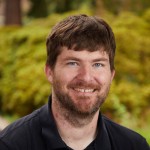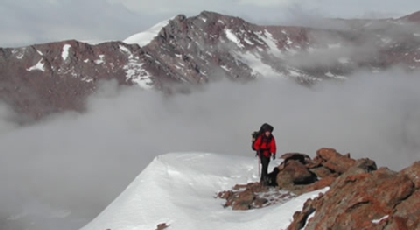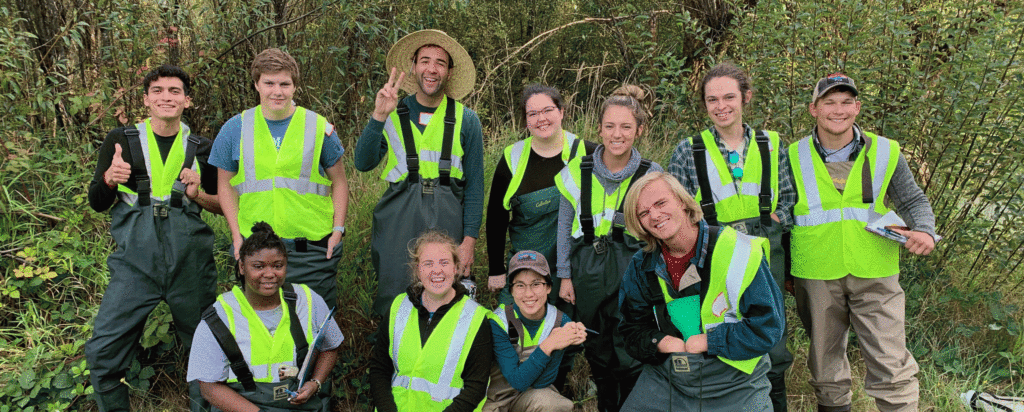Page 13 • (417 results in 0.033 seconds)
-
Specific Elective Course OptionsThe Domain-Specific Electives give students the opportunity to explore or apply data science in the context of a specific discipline, or to deepen their understanding of data-science related topics beyond the required courses. To qualify as a Domain-Specific Elective, a course must go beyond introductory topics and techniques to develop advanced statistical expertise for the respective field where at least one of the following are met: Data are not easily collected (e.g
-
. Corequisite: CHEM 333. (4) CHEM 332 : Organic Chemistry II Chemistry of aromatic compounds, carbonyl-containing functional groups, amines, phenols, and an introduction to biologically important molecules. Prerequisites: CHEM 331 and 333. Corequisite: CHEM 334 or 336. (4) CHEM 333 : Organic Chemistry I Laboratory Reactions and methods of synthesis, separation and analysis of organic compounds. Microscale techniques. Practical investigation of reactions and classes of compounds discussed in CHEM 331
-

studio work. Check out the photos below of some of our ceramics students working on projects and instructor Steve Sobeck demonstrating techniques on the pottery wheel. Read Previous Statement of Solidarity: Black Lives Matter Read Next How To Make Your Scholarship Application Into a Work of Art LATEST POSTS Pacific Lutheran University Communication students help forgive nearly $1.9M in medical debt in Washington, Idaho, and Montana May 20, 2024 PLU Faculty Directs Local Documentary November 8, 2022
-
the manager, Fernando Duran, who is passionate about making the farm healthy for flowers and workers. He told me the farm uses a quarter of the pesticides it used 20 years ago. In an effort to eliminate pesticides, Duran said, a researcher at LatinFlor found a natural biological control for a stubborn pest, the leaf miner. The scientist found the wasp is a natural enemy of the insect, attacking its larvae. He then developed a vacuum that is used to suck the dead insects off every plant. “I’m happy
-

." Proc. Robotics: Science and Systems Conf. Workshop on New Frontiers for Deep Learning in Robotics July 2017: Caley, Jeffrey A., Lawrance, Nicholas R.J., and Geoffrey A. Hollinger. "Deep Learning of Structured Environments for Robot Search." Proc. International Conference on Intelligent Robots and Systems 2016: Caley, Jeffrey A., and Geoffrey A. Hollinger. "Data-driven comparison of spatio-temporal monitoring techniques." Proc. OCEANS 2015-MTS/IEEE 2015:
-
controlling worry Having the urge to avoid things that trigger anxietyPreventionGet help early Stay active Avoid alcohol or drug use Keep physically active Quit smoking and cut back or quit drinking caffeinated beverages Use stress management and relaxation techniques Make sleep a priority Eat healthyResourcesAnxiety and Depression Association of America American Psychological Association Anxiety Resource Center LOCATION601 121st St S Parkland, WA 98444HOURSMonday – Friday, 8am to 5pmEMERGENCY911 (off
-
Select, purchase, organize, and maintain a quality library collection Offer access to material and information resources regardless of format or location Anticipate information needs in an increasingly globalized community Teach efficient techniques of information retrieval as well as critical evaluation and effective use of resources Provide leadership in the use of information technology on campus Promote diversity, intellectual integrity, and freedom of inquiry and expression In an effort to
-
controlling worry Having the urge to avoid things that trigger anxietyPreventionGet help early Stay active Avoid alcohol or drug use Keep physically active Quit smoking and cut back or quit drinking caffeinated beverages Use stress management and relaxation techniques Make sleep a priority Eat healthyResourcesAnxiety and Depression Association of America American Psychological Association Anxiety Resource Center
-

Christmas. They may see a penguin, but probably not. The only creature that lives year-round in Antarctica. A gnat. And in the area they will be? Nothing at all. “There’s literally no life where we are going,” Todd said. And it will be very cold. Though by Antarctica terms, since the group will be there during the continent’s summer, it will be positively balmy, with an average temperatures ranging from minus 10 degrees up to 40 degrees Fahrenheit. The sun will never set. The winds can be fierce. Todd
-

environmental studies majors, there’s also important data to collect and analyze within a stone’s throw of the university’s campus.Clover Creek flows 14 miles through Parkland, Joint Base Lewis-McChord (JBLM) and Lakewood before emptying into Lake Steilacoom. Its watershed spans 74 square miles. Much of the watershed’s stream system is impaired by low levels of dissolved oxygen, warm water temperatures and bacteria. State and county agencies are working with a coalition of local stakeholders to study and
Do you have any feedback for us? If so, feel free to use our Feedback Form.


